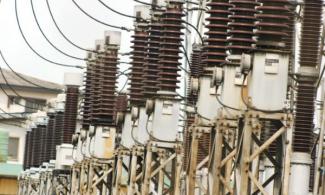
Shortly after the World bank secured Azura, it helped the government to also guarantee the construction of the Okwo gas plant. The field was to feed the 560 megawatts (MW Calabar National Integrated Power Project. The tool used to ensure the undisturbed delivery of gas to the power station is a Partial Risk Guarantee (PRG). Indeed, the Chief Executive Officer of Seven Energy, Philip Ihenacho was a happy man when the Nigerian government represented by the Vice-President (Yemi Osibajo) and the World Bank signed the $112 million guarantee in November of 2016.
The big challenge for people who are investing in the gas sector today is payment risk. If I build my infrastructure and I am supplying gas to a customer, will the customer pay me on time?” If he asked operators of the Nigerian Gas Processing and Transportation Company (NGPTC) that question, the answer he may likely get is ‘no!’ NGPTC operates the most strategic gas infrastructure in Nigeria, the Escravos Lagos Pipeline. This line feeds at least seven power stations with gas supply, including the biggest of them, the 1,320 Egbin power station in Lagos. NGPTC has no guarantee against debtors. The operators of those seven power stations the company feeds are perpetual defaulters. NGPTC has now promised to stop gas supply to the Gencos, except they begin to pay for gas supply to them.
Joy Agaji is the Secretary of the Association of Power Generation Companies (APGC), the umbrella body of the Gencos; excluding Azura power and the Seven Energy’s subsidiary- Accugas. She has an explanation on why the Gencos have not been paying for gas supplied to them. “I don’t know if you know that the NGPTC has sent letters to all the Gencos that use gas, threatening that if they don’t come and make their contracts effective, they will cut them off, and you understand the meaning of effectiveness of contract.

“For us to make our contracts effective, NBET need to post us bank guarantees, and NBET says the Discos have not posted to them. So, where do they expect the Gencos to get the LCs and post to them?” Ogaji asked in an interview with This day newspaper.
As explained in the sequel to this piece, the National Bulk Electricity Trading Company Ltd (NBET) collects invoices of electricity produced from the Gencos; receives revenue of power sold by the Distribution Company (DISCOS) and pays the generation companies. But historically, NBET has never paid the full invoice submitted to it by the Gencos. The government intervened through the Central Bank of Nigeria (CBN), with a N701 billion Payment Assurance Facility (PAF). The credit was to be drawn down to meet the shortfalls of the Discos remittances. But the debt that had accrued to the Gencos as a result of the deficit had surpassed one trillion before the government’s intervention. When disbursement began, payments were irregular and deficits were still owed. The Gencos said 80% of their invoices were paid, whenever it occurred to the government to meet its obligations. And out of that, the 80 to 90 percent of payments due to gas suppliers are deducted.
Consequently, the Gencos are unable to meet up with contractual agreements to the contractors that have been keeping their business operations going. The Gencos say they have been ‘bending backward’ to keep the country powered-up. At a time when the existing Gencos say they are under collapse, the federal government was seen to be giving ‘preferential treatment’ to the World bank protected Azura and Accugas-Seven Energy.
On the 12th of February, for instance, the government finalized plans to pay Azura 100% for power generated and Accugas 100% for gas supplied to Calabar NIPP. Both companies were paid N8,140,000 from the N701 billion PAF meant to defray debts being owed the Gencos. The government will pay Azura and Accugas $373,492,398 from the insufficient N701 billion facility. The aggrieved power producers say they called for risk guarantees to secure the huge dollar-denominated loans they acquired from local banks during the privatization process. Their requests were ignored.
[story_link align="left"]58615[/story_link]
The fact is that power producers and their Nigerian financial backers have been sidelined through the partial and sovereign guarantees signed with foreign financial institutions. Out of frustration, 13 generation companies went to the Abuja High Court to lodge their grievances.
In response to the suit, the Minister of Power, Works and Housing, Babatunde Fashola said, “While they seek refuge in a court of law, they must be ready to face scrutiny in the court of public opinion. The court of public opinion is a court of conscience and morality. In the court of public opinion, they must be ready to tell the citizens how they felt when other groups went to court to stop the implementation of tariffs approved by NERC in 2016.
“They must explain to this public court whether they went to court before the government approved a N701 Billion Payment Assurance Guarantee to pay their monthly power bills. They must disclose to this court that they owed debts, from the pre-Buhari era, because their income had reduced to less than 50 percent.
“They must disclose to this court that they now receive about 80 percent income and that this Government is now paying them revenues collected from international customers from the Republics Benin, Niger, and Togo, in dollars, as against the Naira payment that they used to receive.”
The NESI is very warped. It was further complicated by ill-fated privatization, which should have smoothened the industry. If the Electricity Power Sector Reform Act (EPSRA), allowed players in the sector to operate on a willing buyer, willing seller basis, with effective regulation by the industry regulatory body, maybe the situation will not be this twisted.
We wait for the government’s defense in the court hearing which begins on the 16th of April.